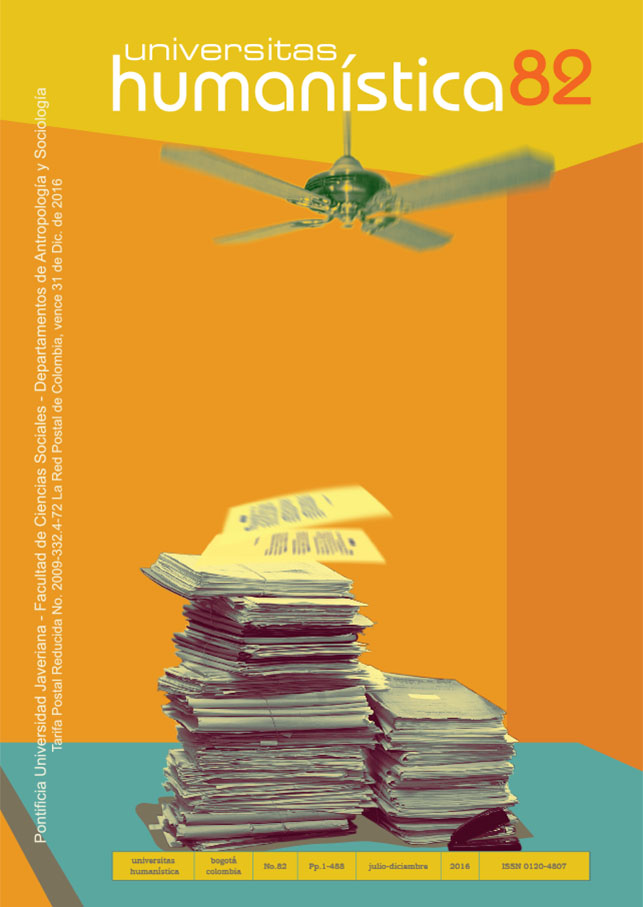Resumo
Este trabalho é um artigo de revisão que visa reconstruir episódios significativos para a disciplina antropológica na sua experiência de observação –através do método etnográfico– de aquilo que chamamos de ‘poder’. Argumento que tal experiência derivou em uma descoberta epistemológica central para o conjunto das ciências sociais que nomeio desontologização do Estado. Exploro três exemplos de diversificação dos objetos de observação etnográfica que prepararam o caminho para tal desontologização. Rejeito a pretensão de escrutínio crítico e exaustivo das etnografias sobre o Estado e por fim convido à reflexão sobre três dos problemas de ordem teórica conceitual que surgiram a partir dos resultados de pesquisa de essas etnografias: a análise dos mitos e ritos do Estado, o problema sua soberania e a pergunta pelo significado das suas margens.

A revista Universitas Humanística encontra-se registada sob a licencia Creative Commons Versão 4.0 Internacional. Portanto, esta obra pode se reproduzir, distribuir e comunicar publicamente em formato digital, sempre que dado o crédito apropriado para os autores e a Pontificia Universidad Javeriana. Permite-se citar, adaptar, remixar, transformar, autoarquivar, republicar e criar a partir do material, para qualquer fim, mesmo que comercial, sempre que indicado apropriadamente o nome do criador, provido um link para a obra original e indicado se mudanças foram feitas. A Pontificia Universidad Javeriana não retém os direitos sobre as obras publicadas e os conteúdos são responsabilidade exclusiva dos autores, os quais conservam seus direitos morais, intelectuais, de privacidade e publicidade.
O aval sobre a intervenção da obra (revisão, correção, edição, tradução, formatação) e a subsequente difusão disponibiliza-se através de licença de uso e não através de transmissão de direitos, o que representa que a revista e a Pontificia Universidad Javeriana são isentas de qualquer responsabilidade que puder se derivar de uma prática ética pobre por parte dos autores. Em consequência da proteção fornecida pela licença de uso, a revista não fica na obrigação de publicar retratações ou alterar informações já publicadas, a não ser que a errata seja decorrente do processo de gestão editorial. A publicação de conteúdos nesta revista não representa royalties para os contribuintes.


